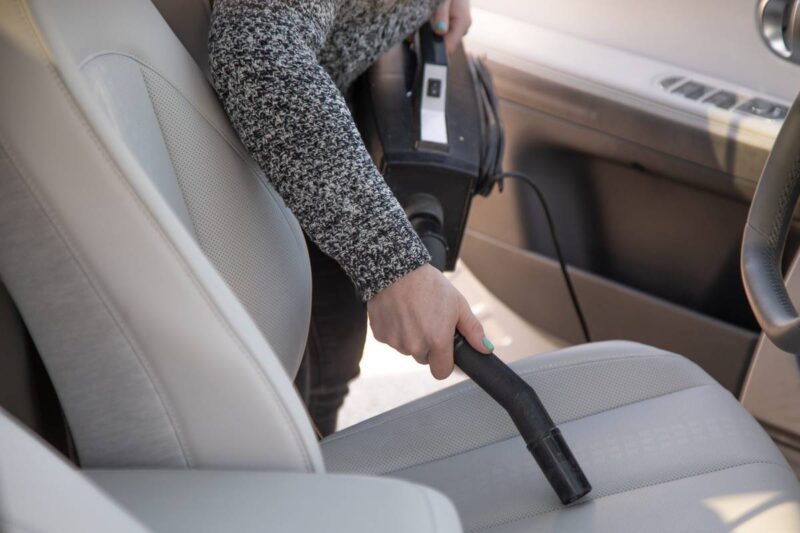Selling a car can be a complex process, but with the right knowledge, you can ensure a smooth and safe transaction. This guide will provide you with essential tips for selling your car in 2024, helping you navigate the process with ease and confidence.
Preparing Your Car for Sale

Assessing Your Vehicle’s Condition
Before listing your car, it’s important to thoroughly assess its condition. Begin by checking for mechanical issues, and cosmetic damages, and ensuring the vehicle is clean both inside and out. For a more comprehensive evaluation, consider using a service like Car Checker.
This platform offers detailed inspections performed by professional mechanics who can identify any hidden problems that you might have missed.
Utilizing such a service is crucial for setting a realistic price and avoiding disputes with buyers, as it provides an authoritative assessment of your vehicle’s condition.
Gathering Important Documents
Gather all necessary documents, including the title, maintenance records, and any warranty information. Having these documents ready will streamline the selling process and increase buyer confidence. Ensure the title is clear and in your name to avoid legal issues during the sale.
Setting a Competitive Price
Research the market to set a competitive price for your car. Use online valuation tools to understand your car’s worth based on its make, model, year, and condition. Pricing your car correctly is vital for attracting serious buyers and ensuring a quick sale.
Marketing Your Car
Creating an Appealing Ad
Create an ad that stands out. Include high-quality photos from different angles and a detailed description of your car’s features, condition, and history. Be honest about any flaws to maintain credibility with potential buyers.
Choosing the Right Platforms
Select the right platforms to list your car. Consider online marketplaces, social media groups, and local classifieds. Each platform has its audience, so choose those that align with your target buyers.
Communicating with Potential Buyers
Communicate effectively with potential buyers. Respond promptly to inquiries and be open to questions. Provide clear and honest answers to build trust. Avoid sharing personal information and set boundaries for communication methods.
Meeting Potential Buyers

Scheduling Viewings
Schedule viewings in safe, public places. Avoid meeting at your home or in secluded areas. Inform a friend or family member about the meeting and consider having someone accompany you for added security.
Test Drives
During test drives, verify the driver’s license and accompany the buyer. Ensure your insurance covers other drivers. Be attentive to the buyer’s questions and feedback during the drive.
Negotiating the Sale
Be prepared for negotiations. Know your lowest acceptable price but remain flexible within reason. Don’t feel pressured to accept an offer you’re uncomfortable with. Clear communication and patience are key to successful negotiations.
Finalizing the Sale
Handling Payment
Accept only secure payment methods. Avoid cash, especially for high-value transactions, and use electronic transfers or certified checks. Confirm the payment clears before transferring the ownership.
Transferring Ownership
Complete all necessary paperwork to transfer ownership. This includes signing over the title, providing a bill of sale, and notifying your state’s DMV. Ensure all legal requirements are met to avoid future liabilities.
Post-Sale Responsibilities
Inform your insurance company about the sale to terminate or adjust your policy. Remove your license plates if required in your state. Provide the buyer with any spare keys, manuals, or accessories that come with the car.
Common Pitfalls to Avoid
Overpricing Your Car
Avoid overpricing your car. Unrealistic pricing can deter potential buyers and prolong the selling process. Stay informed about the market value and adjust your price accordingly.
Ignoring Red Flags
Be cautious of red flags from buyers, such as lowball offers, requests for personal information, or pressure to complete the sale quickly. Trust your instincts and prioritize your safety.
Forgetting Legal and Regulatory Requirements
Ensure compliance with all legal and regulatory requirements. This includes proper documentation, emissions tests, and safety inspections where required. Neglecting these can lead to legal complications.
Understanding Buyer Psychology

Identifying Serious Buyers
It’s essential to differentiate serious buyers from those just browsing. Serious buyers often ask specific questions about the condition, history, and maintenance. They are usually ready to discuss prices and show genuine interest in the details of your vehicle.
Recognizing these signs helps you focus your efforts on potential buyers who are more likely to make a purchase.
Handling Bargain Seekers
Bargain seekers are inevitable, but understanding their mindset helps in negotiations. They often start with low offers, hoping to find a seller who hasn’t done their research. Be firm yet polite in your responses, and justify your asking price with its condition and market value. This approach shows that you’re knowledgeable and serious about your price.
Enhancing Your Car’s Appeal
Investing in Minor Repairs
Minor repairs can significantly enhance your car’s appeal and value. Addressing issues like scratches, dents, worn tires or old engine parts can make your auto more attractive to buyers. These improvements don’t have to be costly but can make a big difference in how your car is perceived.
Professional Detailing
Investing in professional detailing can transform your auto’s appearance. A clean, well-maintained car creates a strong first impression. Detailing goes beyond a simple wash, covering aspects like waxing, interior cleaning, and odor removal, presenting it in the best possible light.
Leveraging Technology in Selling
Using Online Tools for Valuation
Leverage technology to get an accurate valuation of your auto. Online tools consider various factors, including mileage, condition, and market trends. This information helps you price your car competitively and confidently.
Digital Marketing Strategies
In the digital age, effective online marketing can significantly broaden your reach. Use social media platforms, car-selling websites, and online classifieds to advertise your car. A well-crafted digital ad with excellent photos and detailed descriptions can attract a wider audience.
Legal Considerations

Understanding State Regulations
Each state has different regulations for selling a car. Familiarize yourself with your state’s requirements regarding emissions tests, safety inspections, and title transfers. Ignorance of these regulations can lead to legal issues and delays in the selling process.
Conclusion
Selling your car safely and smoothly requires preparation, knowledge, and attention to detail. By following these tips, you can ensure a successful and secure car sale in 2024. Stay informed, be cautious, and prioritize your safety throughout the process.
Related Posts:
- What Is a Car Checker and Why Is It Important
- Deck Roof Tips for Designing and Building Your…
- How To Cancel Apple TV Plus Subscription? A…
- How to File for Long-Term Disability: Legal Tips for…
- How to Find a Roof Leak: Expert Tips for Timely Detection
- 18 Legal Steps on How To Win Your Long-Term Disability Claim













